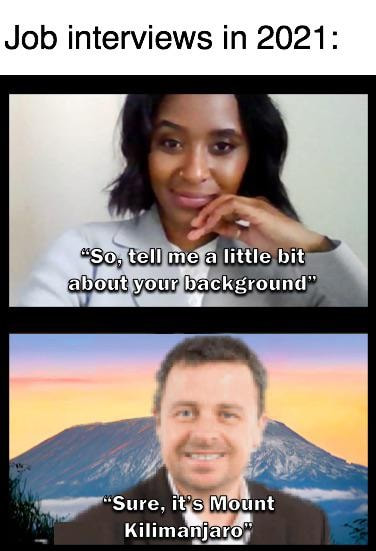The Interview
At this point the prospective employee should have their "application documents" (i.e., Cover Letter, CV) in order and possibly off to various employers waiting for a response. This is a good time to get yourself prepared for an interview as they can occur at any time and modality. You have to be ready at any point to be contacted, whether it is a reply email looking to schedule an in person or virtual interview, or an out of the blue phone call looking to chat. With the latter option a possibly, remember to always answer your phone professionally, or screen the call through a voicemail.
Interview Prep Videos - here
Interview Prep Videos - here
Online Resources
- "The purpose and basics of a job interview" (via PracticeMatch.com)
- "5 steps for interview prep" by Stacy Potts, MD. Practice Link, 16 Dec 2020.
- "A guide to interviewing" (via University of Nebraska-Lincoln)
- "Physician Job Interview Guide: How to Ask the Right Questions" (via Prodiver Solutions & Development, 29 July 2021)
Interview Preparation
- Research “them” – the company; the interviewers; the process
- Do not be afraid to find out who you are being interviewed by?
- Ask what is the process? à shows interest/intent, organization skills, passion, and excitement.
- Use the tools at your disposal to learn as much about the practice and interview process as possible
- Practice website, LinkedIn, internet, past associates (you may have a relationship with)
- Co-residents who may have also applied for the practice in the past
- Research “you” – is this place for you?
- You may be able to answer this as you start to research the practice as noted above
- Review – how you presented yourself (CV)
- Make sure you know each item on your CV and can give a 1-2 sentence description of any point listed.
- Dress – business formal (vs.) casual
- Try to figure out what the dress code is. Always better to dress up than down
- Questions – come with them!
- Culture, team, roles, responsibilities
- What is role of new person? How I/that person fit in? What does your practice need/do well/poor?
- Resources, equipment, daily practice items
The Actual Interview
- Employers will want to know/ask…to see how you will fit into the practice..
- About your family;
- Your education, residency, etc. & experiences;
- Skills you offer (strengths, weakness);
- Billing/patient experience (Office and Surgical knowledge);
- Possibly case (office vs. surgical pathology vs. billing) situational work-ups;
- Just like residency interviews, you know what’s coming – plantar fasciitis, gout, bunion, hammertoes, wound/infection.
- Employers are judging you all the time.
- Systematic screening of applications (Objective)
- Education, experience, specialties, references, publications
- Classify applicants as “high, moderate, low” potential
- NOTE - The Objective nature of setting cutoffs may be more of a reality in Covid-times, with greater # interviews, need some way set a “cut-off” to applicants
- "Cultural Fit"
- Determining if you fit the culture of the practice (their values, principles, etc.)
- Systematic screening of applications (Objective)
- Know what’s going on “in real life.” (i.e., the "social" side of the interview)
- Be Truthful to both THE EMPLOYER
- …and YOURSELF
The Actual (Virtual) Interview
In the age of Covid, this became a much more apparent mode of interviewing, from residency to jobs. The points below can be utilized in any instance of a "virtual" interview.
|
Same as In-Person...
|
Different than In-Person
|
|
6 Quick Tips
|
